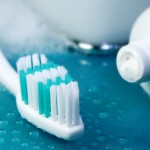
Research in to the anti-caries effect of arginine, an amino acid that occurs naturally in saliva and a range of food products, has been underway since the 1980s. It has recently it has been introduced as an additive to toothpaste and other dental products.
The aim of this review was to evaluate the evidence supporting the caries-preventive effect of the addition of arginine to dental care products, with special reference to preventing the development of new caries lesions and the progression of existing caries lesions, in children and adults.
Methods
THe PubMed, the Cochrane Library, Centre for Reviews and Dissemination (CRD) and Embase databases were searched. Randomised controlled trials (RCTs) of treatment with arginine in fluoride-containing dental products that measured dental caries incidence or progression in children, adults and elderly subjects were considered. Two reviewers independently assessed relevance and quality. Individual study quality was assessed using the GRADE criteria as strong, moderate, limited or insufficient.
Results
- 7 studies met the inclusion criteria
- 5 studies involved children and 2 adults
- Both adult studies and I child study were at high risk of bias, the other 4 child studies were considered to be at moderate risk.
- These 4 studies compared fluoride toothpaste (1,450 parts per million, ppm) with the addition of arginine (1.5%)with 1,450 ppm Fluoride toothpaste as a control.
- For caries incidence
- In children only 1 study was included providing very low quality evidence that the addition of arginine to fluoride toothpaste had any effect.
- In adults no studies were included.
- For caries progression
- In children 3 studies were included providing very low quality evidence.
- In adults no studies were included.
- Arginine toothpaste is about 40% more expensive than conventional toothpaste.
Conclusions
The authors concluded:-
At present there is insufficient evidence in support of a caries-preventive effect for the inclusion of arginine in toothpastes. More rigorous studies, and studies which are less dependent on commercial interests, are required.
Comments
The review was conducted for the Swedish Agency for Health Technology Assessment and Assessment of Social Services (SBU) and follows a robust methodology. The review found little high quality evidence had states in the discussion that:-
There is currently no reason to recommend arginine-fluoride toothpaste in preference to conventional fluoride toothpaste.
They highlight a number of concerns relating to the primary studies. The involvement of employees of commercial companies in the included studies, lack of pre-published trial protocols, poor description of randomisation processes. There were also concerned regarding the use of QLF to measure caries progression and the fact that most of the included studies were only of 6-month duration. An earlier systematic review of arginine containing formulation by Li et al (Dental Elf – 10th Dec 2015) included 10 studies again rating the quality of the available evidence as low and noting that they were all industry sponsored.
Links
Primary paper
Ástvaldsdóttir Á, Naimi-Akbar A, Davidson T, Brolund A, Lintamo L, Attergren Granath A, Tranæus S, Östlund P. Arginine and Caries Prevention: A Systematic Review. Caries Res. 2016 Jul 12;50(4):383-393. [Epub ahead of print] PubMed PMID: 27403876.
Other references
Dental Elf – 10th Dec 2015

Arginine toothpaste & caries prevention? https://t.co/2S1JhOcXdv
Arginine and caries prevention https://t.co/ljhWMnOaPw
[…] post Arginine and caries prevention appeared first on National Elf […]
Arginine and caries prevention? https://t.co/2S1JhOcXdv
Insufficient evidence for caries-preventive effect of arginine in toothpastes https://t.co/2S1JhOcXdv
Is arginine-fluoride toothpaste better than conventional toothpaste for caries reduction? https://t.co/2S1JhOcXdv
Limited evidence that arginine-fluoride toothpaste better than conventional toothpaste for caries reduction https://t.co/2S1JhOcXdv
Don’t miss: Arginine and caries prevention https://t.co/2S1JhOcXdv